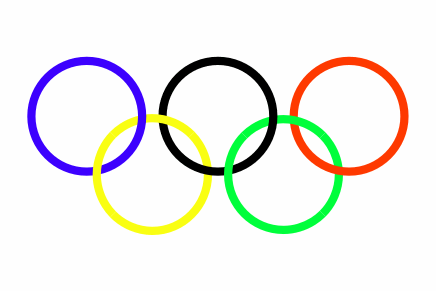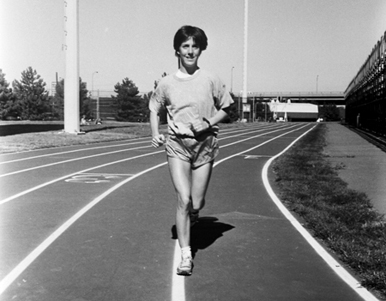1. What are the two most well-known myths about how the ancient Olympic Games were started? Illustrate your answers and add more myths or legends about the history of ancient Olympic Games.
The Legend of Pelops.
One of two tales which describe the founding of the Olympics tells how Pelops won the hand in marriage of Hippodamia. Her father, King Oeomaus lived in fear of a prophecy predicting he would be killed by his future son-in-law. To date, the King had killed thirteen suitors before Pelops asked for Hippodamia's hand. Challenged to a chariot race, Pelops bribed the King's charioteer, Myrtilus, into helping him. The bronze lynchpins holding the wheels to the chariot axle were replaced with pins of beeswax which disintegrated during the race, causing the wheels to fly off sending the King to his death.
One version of the tale claims the Games were held to honour the memory of Oeomaus, the other, that they were a victory celebration to honour Pelops' achievement.

Heracles, Son of Zeus
The second myth attributed to the founding of the Games involves one of Greece's most famous mythical heroes, Heracles.
Son of Zeus and the mortal woman, Akmena, Heracles was stricken by a fit of temporary insanity by the Goddess Hera, during which he murdered his wife, Megera, and his twin children. In atonement for his crime, Heracles was ordered to serve King Eurestheus for a period of twelve years, during which he was set twelve labours requiring great strength and ingenuity.
2.What is the Olympic symbol? What is the Olympics motto? What is the Olympic flag and what do the symbols on it mean? Give your explanations with illustrations.
The Olympic symbols are the icons, flags and symbols used by the International Olympic Committee to promote the Olympic Games. Some—such as the flame, fanfare, and theme. Motos of Olympic are faster, harder, stronger. The Olympic flag has a white background, with five interlaced rings in the centre: blue, yellow, black, green and red.

These five multicolored Olympic rings stand for the five continents where the athletes traveled from to take part in the sporting competitions of these Olympic events.
3. When did women first take part in the modern Olympic Games? Give the details of the fields of sports women participated in.
In the 1912 summer olympics. 1900 in Paris in Ladies Singles Tennis. Charlotte Cooper was the winner and has gone down in history as the first woman to win a gold medal in the Modern Olympic Games. In 1900 they participated in ladies single tennis, but women competed in swimming events for the first time in 1912 and 1928, women competed in track and field events for the first time.

http://www.bu.edu/today/news/photos/81_618_33.jpg
http://en.wikipedia.org/wiki/Winter_Olympic_Games
4. Why aren’t the Winter Olympic Games held in leap years now?Give the short overview of the history of winter Olympic Games
Back when the athletes had to pay thier own way in order to compete it probally took that long to be able to raise the money and until 1992 both winter and summer games were played the same year. After 1992 the winter games jumped to 94 and the summer stayed on the same track 96-2000-2004-2008. Now it's played in leap years.
The Winter Olympic Games are a winter multi-sport event held every four years. They feature winter sports held on snow or ice, such as Alpine skiing, cross-country skiing, figure skating, bobsledding and ice hockey. Cross-country skiing, figure skating, ice hockey, Nordic combined, ski jumping, and speed skatinghave been competed at every Winter Olympics since 1924.
http://en.wikipedia.org/wiki/Winter_Olympic_Games
5. What are the principles of the modern Olympic movement?
The Olympic Movement is a philosophy created and promoted by the International Olympic Committee. This philosophy advocates using sport not just as a physical activity but also as a means of educating people.
6.When have the modern Olympic Games been cancelled and why?
In 1916 Summer Olympics At the outbreak of World War I in 1914, organization continued as no one anticipated that the war would continue for several years. Eventually, though, the Games were cancelled.
1940 Summer Olympics, 1940 Winter Olympics, 1944 Summer Olympics and 1944 Winter Olympics were all cancelled due to the outbreak of World War II.
7. How many types of Olympic Games are there nowadays? When and where were the firstSpecial Olympic Games officially held?
There are Winter Olympic Games, Summer Olympic Games, Special Olympics World Winter Games and Special Olympics World Summer Games. The first International Special Olympics Games were held in Chicago in 1968.
8. Where will the next winter Olympic Games take place? Characterize the city.
Vancouver is a coastal city located in the Lower Mainland of British Columbia, Canada. It is named for British Captain George Vancouver, who explored the area in the 1790s. The name Vancouver itself originates from the Dutch "van Coevorden," denoting somebody fromCoevorden, a city in the Netherlands.[2]
9. Why are the Olympic Games of 1936 and 1972 specific? Give a short overview of the events of those games.
The 1936 Summer Olympics, officially known as the Games of the XI Olympiad, was aninternational multi-sport event which was held in 1936 in Berlin, Germany. Berlin won the bid to host the Games over Barcelona, Spain on April 26, 1931, at the 29th IOC Session in Barcelona . It marked the second and final time that the International Olympic Committee would gather to vote in a city which was bidding to host those Games. The only other time this occurred was at the inaugural IOC Session in Paris, France, on April 24, 1894. Then, Athens, Greece, and Paris were chosen to host the 1896 and 1900 Games, respectively.
The 1972 Summer Olympics, officially known as the Games of the XX Olympiad, were aninternational multi-sport event held in Munich, in what was then West Germany, from August 26 to September 11, 1972.
The Munich Olympics were intended to present a new, democratic and optimistic Germany to the world, as shown by its official motto, "the Happy Games." The emblem of the Games was a blue solar logo.


was the first officially named Olympic mascot. The Games also saw the introduction of the now-universal sportspictograms designed by Otl Aicher. Soon, however, the killings of 11 Israeli athletes by Palestinian terrorists in an event known as the Munich massacre took center stage.
http://www.murraywilliamson.org/images/1972_olympic_team.jpg
https://blogger.googleusercontent.com/img/b/R29vZ2xl/AVvXsEj8E1dRdcJElkDZf-V9lTnS4CMIetsTE4m1kVw08RdG0XrIUVyaFT7kgOr0GjzuHKaPwZu2l6swBbVCpTNE65f1pxqKA6n4hLtdJ4FoH1GW2mJggkXRA2af-TlrocYLi7ZkES8uDSBwXO0/s400/Picture1.png
10.What is the historical background of the marathon of the ancient and modern Olympic Games? Who hold the world records of the modern Olympic Games among men and women?
The first modern Olympic games were held in 1896 in Greece.






No comments:
Post a Comment